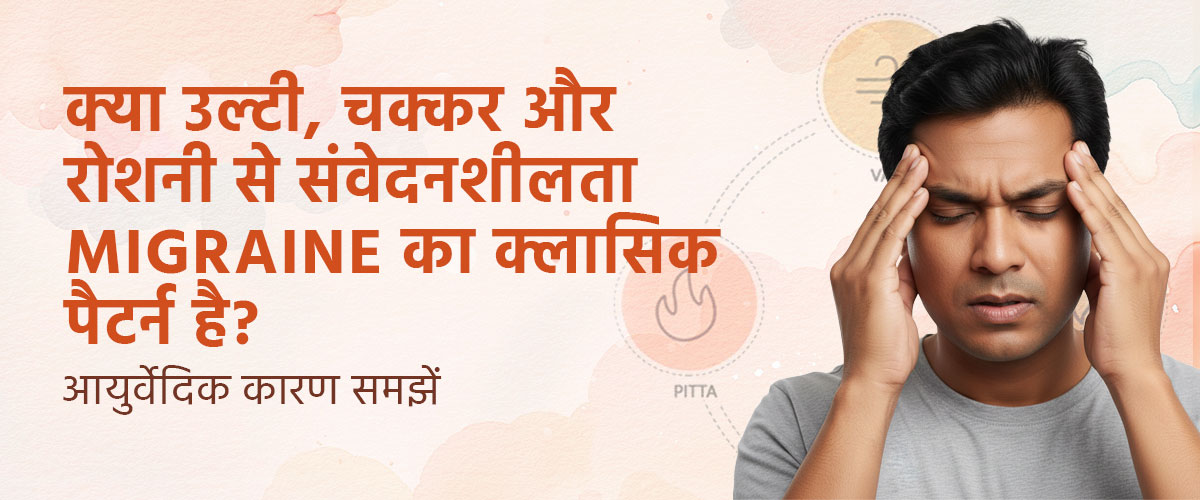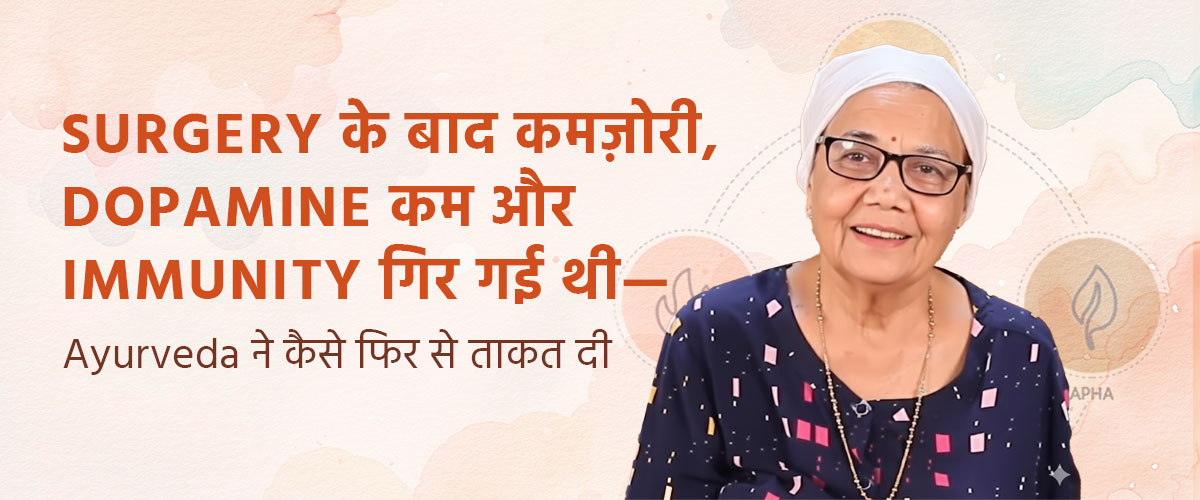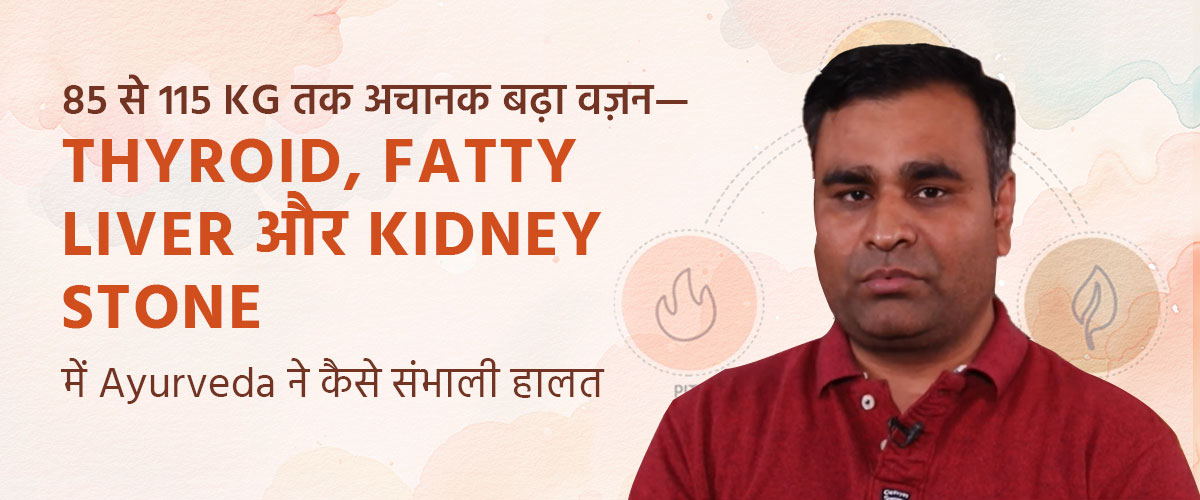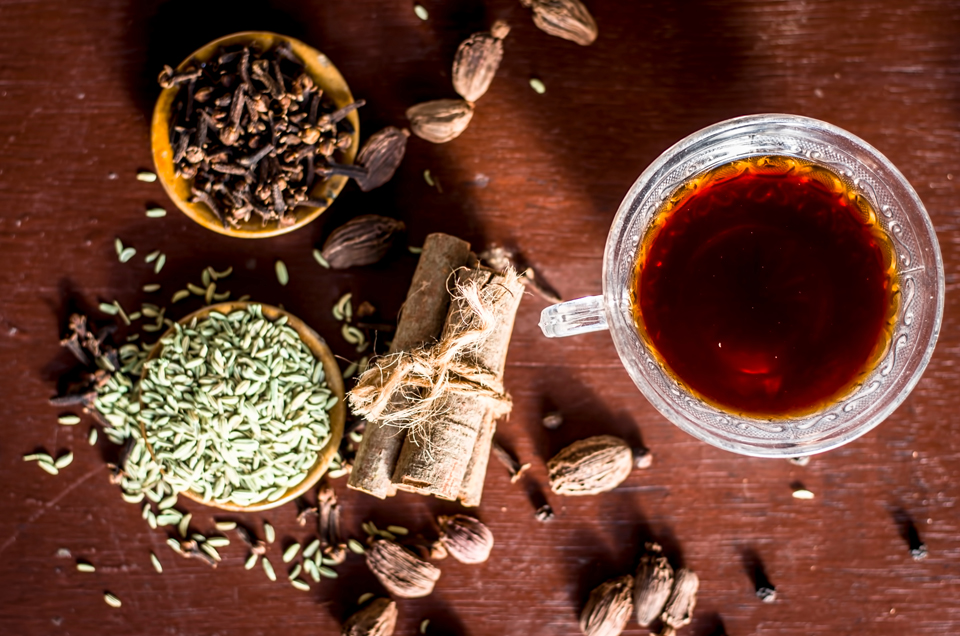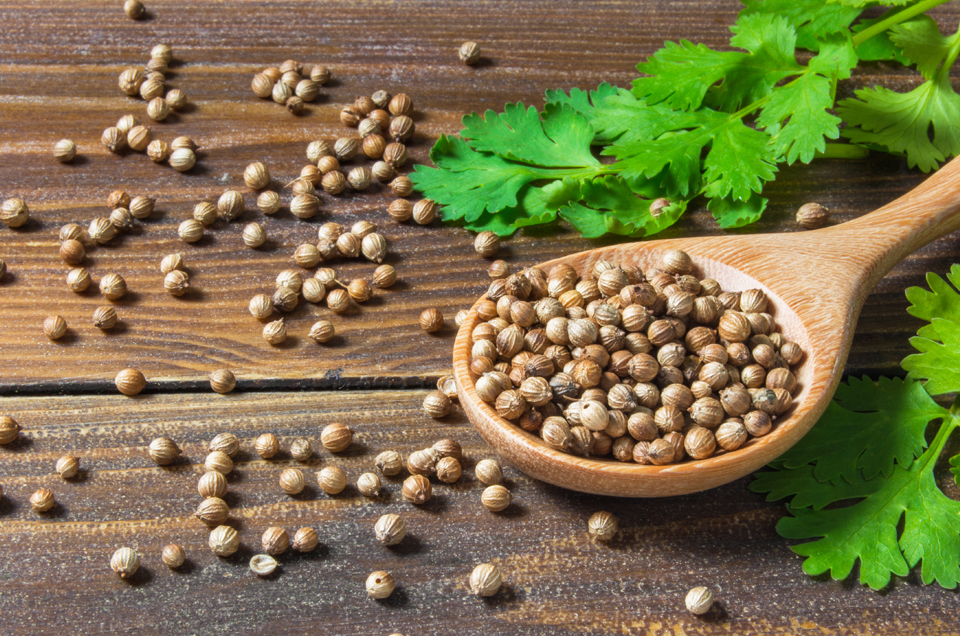 In our previous blog Get The Best Ayurvedic Treatment In India, we took a deep dive into the fundamentals of Ayurveda. Starting with the history, we discussed how Ayurveda remains a well-established medical system originating in India, some 5000 years ago. Even more, its philosophies, even today, are being implemented in modern ayurvedic treatments to achieve lasting relief by healing the root cause of problems.
In our previous blog Get The Best Ayurvedic Treatment In India, we took a deep dive into the fundamentals of Ayurveda. Starting with the history, we discussed how Ayurveda remains a well-established medical system originating in India, some 5000 years ago. Even more, its philosophies, even today, are being implemented in modern ayurvedic treatments to achieve lasting relief by healing the root cause of problems.
We discussed the three doshas - Vata, Pitta and Kapha and their roles in Ayurveda. We also discussed what Prakriti is and how the combination of doshas defines the Prakriti of an individual. In this blog, we will continue our journey to unlocking the authenticity of the medical science - Ayurveda. To begin with, we will pick from where we left off to discuss Vikriti, another word for the Imbalances within an individual.
What is Vikriti?
In Ayurveda, ill health is viewed as a dosha imbalance commonly referred to as Vikriti. Imbalance in the three doshas can manifest in various stages, say for instance, from a general feeling of “something is not right” to an illness with serious complications. To address this, Ayurveda presents a vast toolbox of treatment modalities to choose from; but do remember, no matter what the treatment is, the goal is always to reestablish the person’s natural balance of vata, pitta, and kapha.
How To Balance Vikriti?
To achieve this balance within ourselves, Ayurveda focuses on two key principles:
- Removal of the inciting cause.
- Treating the lingering imbalance with the opposite.
These two principles are the base for any Ayurvedic practitioner to diagnose a condition. They provide the means to perform in-depth analysis and skillfully draw from the toolbox and create a customised wellness plan, best suited to the condition of a patient.
We at Jiva Ayurveda suggest you let your health be in the hands of an expert, certified Ayurvedic Doctor and start your Ayurveda treatment journey with a preliminary consultation, helping the doctor assess your case, condition, history etc. Post assessment, an expert-certified Ayurveda doctor should prepare a holistic treatment plan, that will include various elements such as herbal medicines, certain specific Ayurveda therapies such as Panchakarma, regular monitoring of your progress through key indicators and international scales of measurement, yoga, meditation and most importantly, strict diet regulations as per your condition and medication.
Do keep in mind that all Ayurvedic medicines that Jiva offers are 100 % natural with zero side effects. However, they should not be consumed without proper guidance from a certified Ayurveda doctor at Jiva Ayurveda. Let's take a moment and now understand the relationship between lifestyle and the doshas.
How Does Our Lifestyle Influence Dosha Balance?
Given that we don’t live in a protective bubble, we must face numerous challenges to our health daily. Some stem from choices that we make—our diet, lifestyle, lack of exercise, unprocessed emotions, and undue stress. Others from exposures that are out of our control—water and air pollution, harmful chemicals in our food supply, excessive noise in our communities, etc. As we interact with our world, both the world external to us and the world within our minds, the doshas tend to get jostled out of balance.
Like Increases Like is an invaluable Ayurvedic principle to keep in mind, here. If you are experiencing an excess of a particular quality and associated discomfort, exposure to more of that quality will only aggravate the problem. For instance, if you are a Kapha-predominant person with a heavy, solid constitution, then eating heavy, fatty foods, which are Kapha in nature, will surely aggravate a weight problem.
Similarly, for a pitta-dominant person, an excess of spicy foods, which are naturally heating and inflaming, can aggravate acid indigestion, which is also hot, burning, and fiery by nature. Frequent travel on aeroplanes, which involves vata (light, airy, drying, cold, rough), can worsen vata imbalances, such as constipation and sleeping difficulties (good sleep is grounded and heavy, the opposite of vata). Air travel can also challenge the nervous system, which functions on the principle of movement (as nerve impulses) and so is vata in nature; perhaps you’ve noticed certain associated symptoms after a long flight, such as discomfort from pinched nerves, sciatica, and so on. Understanding this principle of like increasing like gives us a powerful tool for wellness.
Our Digestive fire, agni, is also important to address for optimal balance. Our body uses agni to process anything that comes into it. When the agni (digestive fire) is strong, it can take whatever comes in, extract the nourishing portion, and eliminate the rest as waste. But if our agni is weak, or the insults on our body are just overwhelming, we aren’t able to process everything that enters, and this leads to a build-up of toxins, Ama. This build-up of ama can inhibit the proper functioning of any bodily system and lead to dosha imbalance. Of note, digestion refers to more than our body’s processing of the food and drink we ingest. The mouth is only one entry point into the body.
We must also digest the experiences that come in through our eyes, ears, nose, and skin. Included with these experiences are the emotions they create, which the agni must digest as well. As most of us have experienced, all emotions have a lingering presence, whether anger, fear, joy, or grief. Hearing cruel, angry words said in the “heat of an argument” can produce, for example, acid indigestion that is similar to that which occurs after eating an excessively spicy meal.
Undigested experiences and emotions can lead to ama and physical symptoms just as readily as can an undigested meal. Finally, we must look at the choices we make. Ayurveda considers the source of many imbalances to be our own “crimes against wisdom”.
Our innate wisdom of what is appropriate for us and what is not tells us what choices to make, but we often choose to override this inner voice in preference of a strong desire or craving. These choices can pile up, especially when there is already a weak agni or backed-up ama. While there is nothing wrong with having fun or indulging in life’s pleasures, one must know one’s limitations. Our own choices are often at the core of dosha imbalance.
The Secret To Good Health, Balanced Doshas?
Once you know your Prakriti (unique dosha balance), you can act to promote your well-being. The key is to keep your vata, pitta, and kapha balanced. This is something that you can attend to regularly—daily. The ideal time to start paying attention to the doshas is before they become imbalanced—this is the Ayurvedic method of true preventative health. In this context, your daily routine is your most powerful ally. The body, being subject to the laws of nature, ages. But ageing does not
need to mean being burdened with ill health. What can you do to age gracefully, starting at any age?
Four DIY Strategies to Keep Your Doshas Balanced
1. Keep Your Digestive Fire Strong
Agni, or digestive fire, is responsible for nourishing the tissues and removing wastes, so it must be protected and promoted. How do you know if your agni is strong? Your appetite, digestion, and ama (toxin) buildup are good indicators.
Appetite
A different kind of appetite is associated with each dosha. Vata dosha, whose agni is often flickering and on the cusp of being snuffed out, may have a variable appetite, being hungry at times, and having no appetite at others. Pitta, on the other hand, has a fiery hunger that arises quickly and with intensity and demands to be satisfied. Likewise, Kapha’s appetite is sure and steady, following a faithful pattern.
The common thread that reveals healthy agni is hunger. If you aren’t getting hungry, and find yourself just eating because it’s time to eat, then your agni is struggling, likely either from the delicacy of vata or the heavy dullness of excess kapha.
Digestion
Food is supposed to nourish our tissues and give us energy. Ask yourself how you feel after a meal. If the agni is strong and the doshas are balanced, you will feel energised and satisfied after a meal.
If imbalanced vata is affecting your agni, you may have bloating, burping, and flatulence as your embarrassing post-meal acquaintances. If pitta is excessively stoking your agni, acid indigestion and burning may torment your peace. And if imbalanced kapha has gotten a hold of your agni, you may be too sleepy after a meal to know what hit you, or you may notice a phlegm or mucus buildup.
Ama (Toxin) Buildup
When the agni is not healthy, the things that enter the body are not properly processed and Ama builds up, obstructing natural flow. If you look anywhere in the natural world, stagnation leads to poor health. Consider a body of water. What happens when the water can’t move? Algae and other growth build up, eventually choking out the water’s entire living ecosystem.
Similarly, says Ayurveda, life energy must be able to flow freely through the body’s tissues for a healthy state to exist. Several signs can clue you into Ama buildup. The first is a heavy white coating on your tongue. Make a habit of checking your tongue every morning, and you’ll see that the coating changes, especially as you change your diet and lifestyle.
The second sign of ama is odour— body odour, mouth odour, odour with flatulence, etc. Another sign of ama is a generalised sense of heaviness and dullness—both in the body and the mind. If ama is creating havoc in your internal ecosystem, you can take charge by supporting a healthy agni. We suggest you connect with a Jiva Doctor to organise a diet plan for your needs.
2. Food Is Medicine - Re-Assess Your Diet
Diet is such a torturous word for most people. It brings to mind thoughts of depriving oneself of enjoyment and slaving over a stove juggling a thousand nutritional principles regarding what you should be eating. With Ayurveda food is to be celebrated. It is the very substance of life. Once digested, it is the essence of our food that nourishes our every cell and allows for the production of new cells. In this way, food is medicine and can be used to prevent or right dosha imbalance.
Many people relate eating to a list of rules, of do’s and don’ts; but you can also approach eating from an intuitive place, where you consider the state of your being and what needs balancing, then choose foods with the opposite qualities to help create the balance.
On a cold winter day, for example, when your body has to brave freezing temperatures and gusty winds, treat yourself to warm, grounding foods. Heavy, grounding foods don’t have to be fattening—you can enjoy a hearty soup, warm rice, or a small baked fruit dessert redolent with the aroma of cinnamon. On such a day, a raw salad would be best avoided due to its cold, dry, rough, and light qualities.
Conversely, if you are feeling a lot of internal heat and excess pitta, which may be manifesting as an angry skin rash hot flashes or a flared temper, soothe yourself with light, sweet, bitter, and cooling foods.
Enjoy fresh greens and sweet fruits. Fresh milk—or coconut milk—based foods are also nicely cooling and soothing. Just stay away from fiery, spicy dishes, predominantly sour/acidic foods, or excessively salty foods. As a general guideline, fresh and home-cooked is best. Even with a busy schedule, you can find time to nourish yourself in this way. Do a little extra prep when you have the time, and find recipes that come together quickly. Most importantly, remember to give your food some love.
The Ayurvedic point of view is that on a subtle level, the intention and emotion that go into making your food impact its ability to nourish your body. Developing a joyous relationship with your food is one of the most healthy things you can do, as opposed to falling into guilt, haste, or indifference.
Eventually, thinking of your food in this way becomes second nature and you can choose your foods wisely without worrying about too many rules. If you take just a few minutes to observe how you feel after every meal, you naturally start recognizing the effects of various food choices on your body. When in doubt, consult a certified Ayurveda expert.
3. Create a Daily Routine
To reap the benefits of Ayurveda, and prevent the doshas from wreaking havoc, let the principles of Ayurveda become part of your daily lifestyle. Rather than a constrictive set of rules to follow, Ayurveda offers a creative and expansive way of living.
Consider creating simple, enjoyable daily routines for yourself. In a world where you constantly give of yourself to those around you, you must find time and space to give to yourself, to rejuvenate yourself. A daily routine allows you to do just this—keep yourself tuned up to boldly face the opportunities and challenges of life. Ayurveda offers practices that address each of the sense organs, to help them function optimally.
4. Choose Supplements When Needed
To keep the doshas balanced, nature has provided supportive herbs whose benefits have been relied upon for thousands of years. These benefits have been enumerated in Ayurveda based on the qualities and doshas that each herb addresses, supporting every bodily system and function. Sometimes, the body’s natural intelligence and inner workings need a kick-start or a gentle nudge in the right direction. Herbs can provide just this.
With the benefit of the Internet, you can learn more about which Ayurvedic herbs are traditionally recommended to support which bodily systems and functions. To create a complete plan of action, including herbal supplements, that is just right for you, we recommend that you visit your nearest Jiva Ayurveda clinic and book a one-on-one consultation with a certified Jiva Ayurveda Doctor.
Post consultation, our certified doctors will prescribe certain ayurvedic herbs that are certified organic and are tested for heavy metals and microbes under standard government regulations.
With this, we conclude this blog.
The keys to the kingdom of good health are always in your hands. Embrace Ayurveda, maintain a good digestive fire, eat as per your body, balance the doshas through diet, exercise, and yoga, relax the mind to avoid emotional indigestion resulting in Ama accumulation, and experience the true essence of Ayurvedic Wellness each day through a well-defined dincharya daily routine. And if health persists help from an expert, don’t hesitate to nudge us. With 30 + years of offering authentic Ayurvedic treatments in India, Jiva is always here to cater to your health goals.




